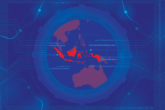March 03, 2023
It’s Time to Appoint a US Special Envoy for Semiconductors
A seismic shift in U.S. semiconductor strategy is at risk of short-circuiting. The cause? Disconnected diplomacy.
Semiconductors emerged from relative obscurity to the top of national security-related policy discussions last year, such that they were highlighted in U.S. President Joe Biden’s most recent State of the Union address. However, though messaging is forefront, it is not coordinated. Like the semiconductor supply chain, this issue is complex, with both domestic and international implications.
A special envoy for semiconductors could demonstrate U.S. leadership without acting unilaterally.
A successful U.S. semiconductor strategy, therefore, requires a special envoy for semiconductors.
Think about it: For an issue that is a top priority for the United States, messaging comes from the Commerce Department, State Department, and the White House, with no clear line of responsibility. While the United States created a special envoy for critical and emerging technology, this position has a broader mission, which includes biotechnology, AI, and quantum. Semiconductors are important enough to warrant a dedicated person at the State Department.
Read the full article from The Diplomat.
More from CNAS
-
Siliconsciousness: The AI Competition: Public Policy Strategies: Part 1
This episode comprises the first part of our special event, “The AI Competition: Public Policy Strategies”. The event, co-hosted by MIT Technology Review, brings together some...
By Dr. ED McGrady
-
How Drones in Ukraine Are Reshaping War
Samuel Bendett, a senior adjunct fellow at the Center for a New American Security, joins The Cipher Brief to discuss the current situation of drones being used in Ukraine.Watc...
By Samuel Bendett
-
Countering the Digital Silk Road: Indonesia
This year marks the 10th anniversary of the Digital Silk Road (DSR), China’s ambitious initiative to shape critical digital infrastructure around the world to advance its geop...
By Vivek Chilukuri & Ruby Scanlon
-
How Secure Is America’s AI Advantage?
https://www.youtube.com/watch?v=7njJkH7XRa8...
By Paul Scharre



